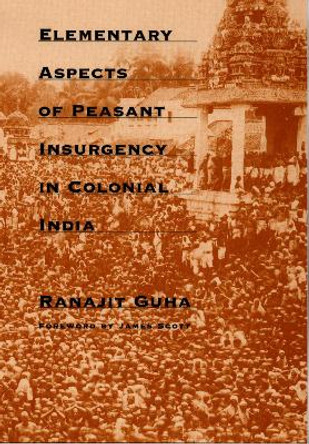Description
Shows how colonial indirect rule and land tenure institutions create state weakness, ethnic inequality and insurgency in India, and around the world.
About the Author
Shivaji Mukherjee is Assistant Professor in Political Science at the University of Toronto, Mississauga. He has published articles in journals including Civil Wars, Journal of Conflict Resolution, World Development and Asian Security.
Reviews
'Colonial Institutions and Civil war makes a crucial contribution to the fast-growing literature that analyzes how historical legacies influence contemporary political violence. Focusing on the consequences of colonial governance for the Naxalite rebellion in India, Mukherjee abandons simplistic dichotomies of direct and indirect rule in favour of a sophisticated, detailed scrutiny of historically rooted causal mechanisms. Based on painstaking analysis of rich data with state-of-the-art research designs and methods, this book has important lessons for students of political violence and comparative politics in India and beyond.' Lars-Erik Cederman, Professor of International Conflict Research, ETH Zurich
'Colonial Institutions and Civil War breaks new ground in the study of intrastate wars by pointing to the historical roots of insurgency, which may account for more proximate factors often cited in the literature. Adding to the rich body of knowledge about the long-term effects of colonialism, Mukherjee shows how areas where the British ruled indirectly offer more fertile ground for more recent insurgencies to thrive. At the same time, he does not take history as destiny: Both wittingly and unwittingly, policy-makers can undo or dampen the effects colonial legacies. Mukherjee's close analysis of the Maoist insurgency in India capitalizes on his deep knowledge of his cases and his compelling, multi-methods research approach.' Melani Cammett, Clarence Dillon Professor of International Affairs, Government Department, Harvard University
'The fundamental problem of development is how to attain order in post-colonial states. This book provides a new theory and rich empirical analysis of the Indian case which reorients (pun intended) our understanding. If only Hobbes had lived to see it.' James Robinson, The Reverend Dr. Richard L. Pearson Professor of Global Conflict Studies, University of Chicago
'In this masterful work of comparative-historical analysis, Shivaji Mukherjee shows that variations in the way in which the British built the colonial state are crucial for explaining Maoist rebellions in India. Social scientists who adopt presentist explanations of civil wars will need to pay attention, for Mukherjee finds that their explanations are endogenous to colonialism. Likewise, experts of conflict in India must read this book in order see how a systematic social science perspective provides a new way of understanding the past and its lessons for the future.' James Mahoney, Professor of Political Science, Northwestern University
'Mukherjee's analysis promises to enrich the understanding of how historical legacies shape civil conflicts.' Andrew J. Nathan, Foreign Affairs
'Mukherjee is not simply rehashing well-known arguments about how European colonialism contributed to ethnic conflicts. India's Maoists don't have any single ethnic profile. Their goal is state takeover, not secession. Mukherjee's focus on the colonial origins of class conflict sets this book apart. A second innovation is that Mukherjee goes beyond the binary between 'direct' and 'indirect' colonialism - or, worse still, the ultra-reductive exercise of comparing, for example, all French colonies to all British colonies. Instead, Mukherjee grapples with the astonishingly Byzantine institutions that prevailed in British India. He guides the reader through a dozen colonial revenue systems and multiple forms of indigenous monarchy. He reduces these complexities by categorizing colonial institutions according to their tendency to produce land inequality and limited physical infrastructure. This aspect of the book provides a framework that could be fruitfully adapted for the study of colonial legacies across many economic and political outcomes.' Bethany Lacina, Journal of Peace Studies
'Mukherjee's analysis promises to enrich the understanding of how historical legacies shape civil conflicts.' Andrew J. Nathan, Foreign Affairs
'a commendable analysis of colonialism and its links to violence in the Indian context ...' Jingwei Li, International Affairs
Book Information
ISBN 9781108844994
Author Shivaji Mukherjee
Format Hardback
Page Count 300
Imprint Cambridge University Press
Publisher Cambridge University Press
Weight(grams) 710g
Dimensions(mm) 230mm * 150mm * 27mm



